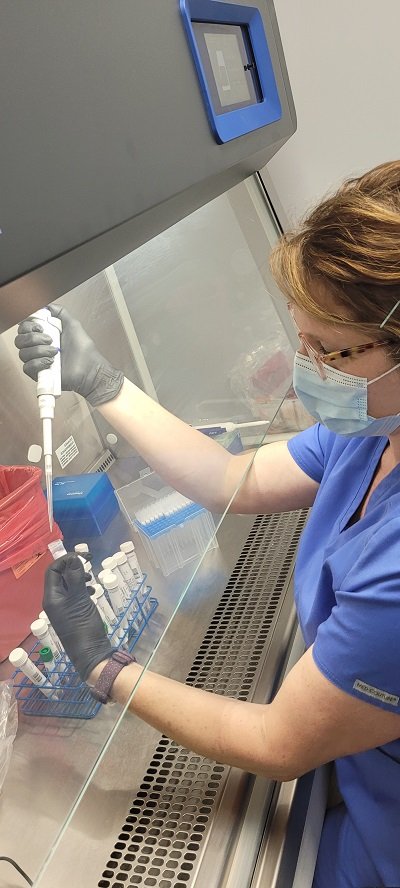Ruthless Resistance
 Dr. Ziad Daoud’s research about antimicrobial resistance, in the one health context, was accepted for publication by The Lancet. It describes the concept of looking at a certain disease or medical issue from the perspective that humans, non-human animals, and the environment interact altogether. The publication of the full article, “Banning colistin in feed additives: a small step in the right direction”, is scheduled for publication in March or April of 2021. Dr. Daoud’s research focuses on the use of the antibiotic Colistin and how its overuse in the environment and animals is promoting resistance. Antimicrobial resistance happens when organisms like bacteria and fungi evolve so that the drugs designed to kill them are ineffective.
Dr. Ziad Daoud’s research about antimicrobial resistance, in the one health context, was accepted for publication by The Lancet. It describes the concept of looking at a certain disease or medical issue from the perspective that humans, non-human animals, and the environment interact altogether. The publication of the full article, “Banning colistin in feed additives: a small step in the right direction”, is scheduled for publication in March or April of 2021. Dr. Daoud’s research focuses on the use of the antibiotic Colistin and how its overuse in the environment and animals is promoting resistance. Antimicrobial resistance happens when organisms like bacteria and fungi evolve so that the drugs designed to kill them are ineffective.
Antibiotics are normally used to treat infectious diseases, however, these medications are often misused. Dr. Daoud estimates that more than 50% of medical prescriptions for antibiotics are not needed. Such overuse has a negative drawback known as “antimicrobial resistance”. Nowadays, many of the microorganisms previously susceptible to antibiotics are becoming highly resistant and referred to as Multi-Drug-Resistant (MDR). In many cases, patients are left without any possible treatment because the pathogen causing the infection is no longer affected by any of the antibiotics available. Dr. Daoud’s research goes on to explores the effects of using antibiotics and antimicrobial agents in animals and in the environment.
Dr. Daoud and his team use holistic methods to address the issue of resistance. They found that farms using antibiotics in animal feed were associated with high rates of poultry and pig colonization (i.e. carrying the resistant organism among their intestinal flora). The research also shows that 100% of the farmworkers’ intestines were harboring highly resistant bacteria. Additionally, Dr. Daoud found resistant bacteria from a hospital’s water-waste one year before the first case of human infection was identified in that specific hospital. This research highlights how the issue associated with resistance is widespread in humans, animals, and environment. Dr. Daoud urges readers to help reduce antimicrobial resistance by only using medical drugs when necessary. Dr. Daoud also emphasizes the need for governments and higher authorities to address these issues by banning or controlling the use of specific antibiotics (such as Colistin) in animals and farms.
At CMU We Do Research, We Do Real World
Story by ORGS intern Hailey Nelson
January 2021